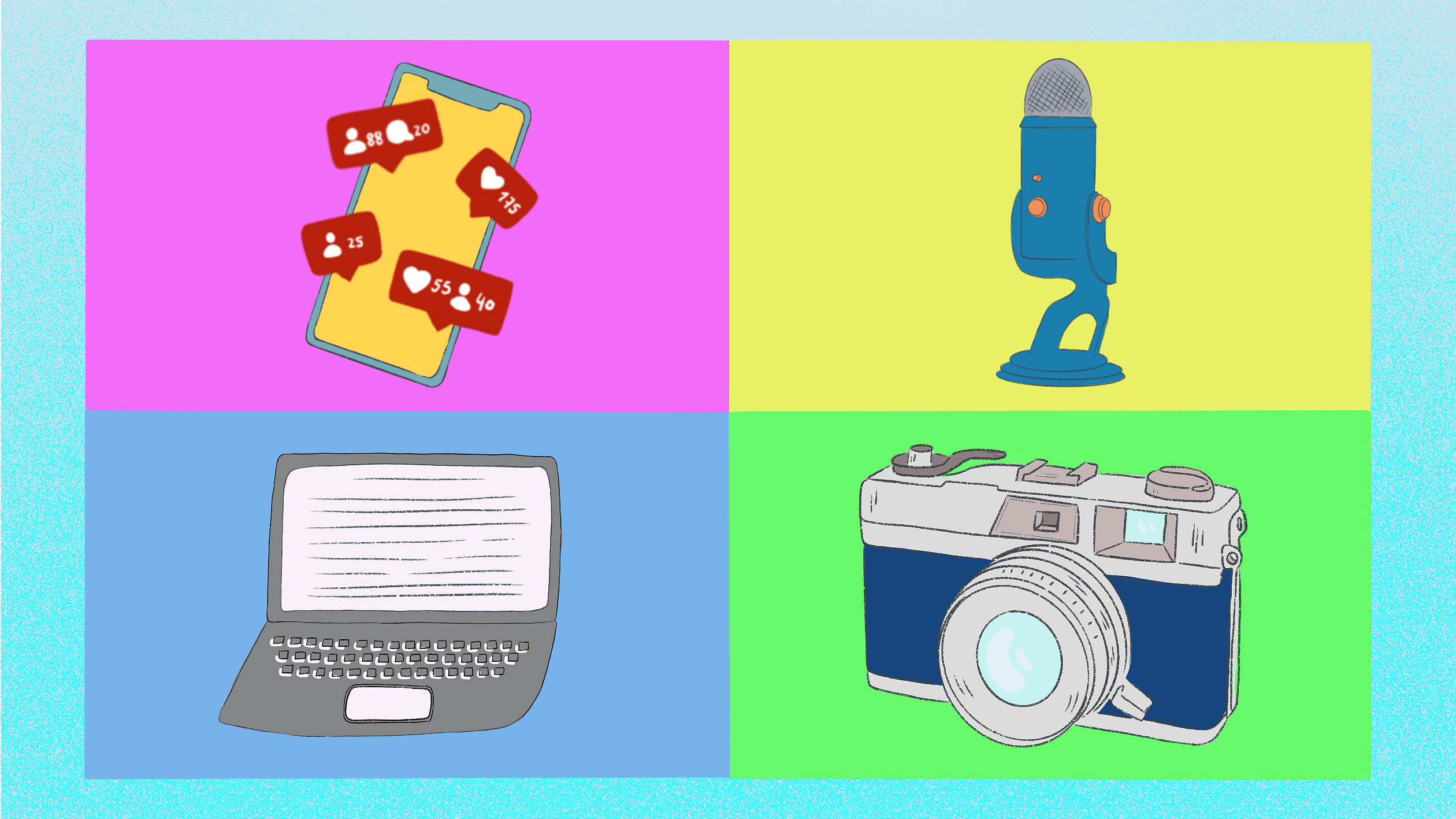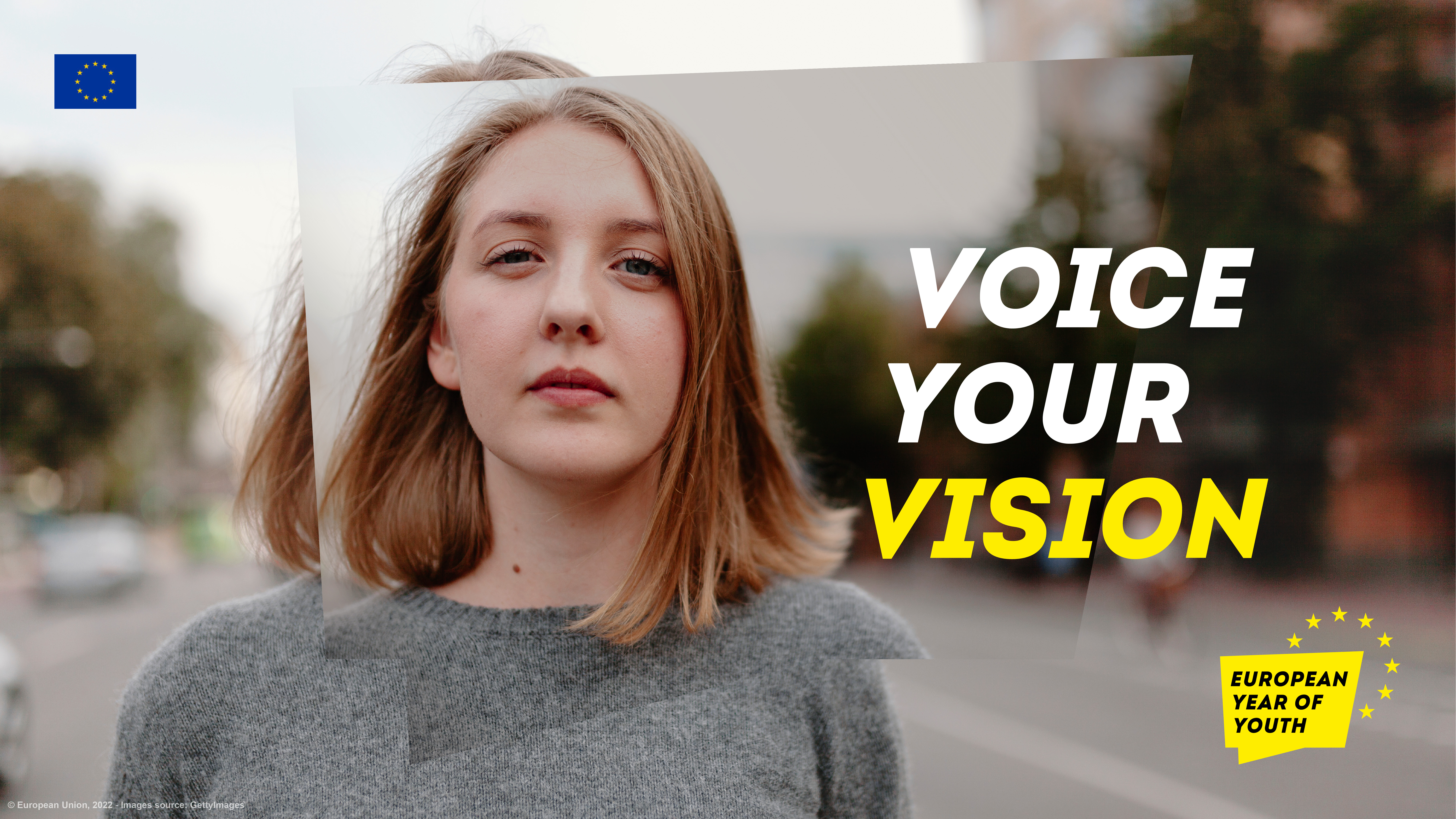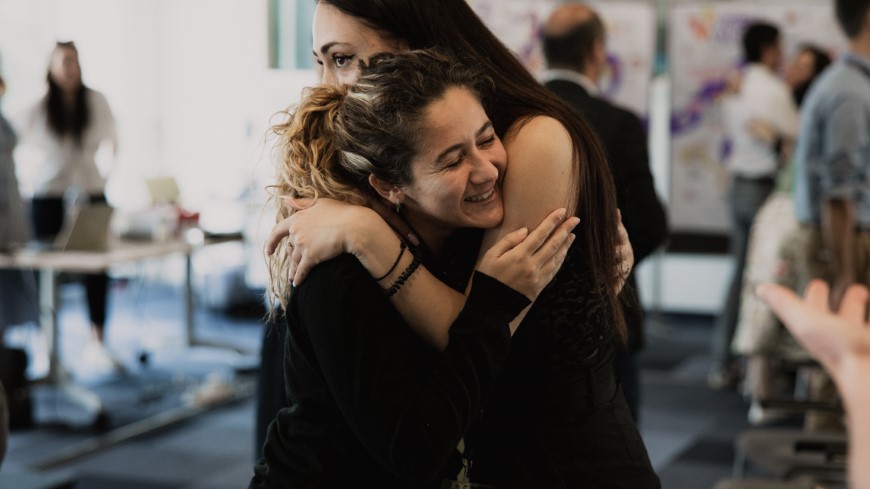
Illustration by Daniela Nunes
Storytellers and content creators: meet the European Young Journalists
by Andreas Andreou
As a part of the European Year of Youth, Eurodesk – a European network of youth information services – collaborated with the European Commission to establish a Pool of European Young Journalists in January 2022. The aim of the pool is to involve young people in content creation and provide visibility to their projects. In the first round, eleven young people were selected from 5 EU countries, through an online call. The young journalists’ mission was to produce opinion-based content, such as articles, videos, and podcasts, on the European Year of Youth dedicated page accessible through the European Youth Portal. The young journalists produced content on issues of concern to young people, such as youth participation, climate change, human rights, migration, and much more! One of the goals of this initiative was to increase youth participation through journalism. Another goal was to bring young people together and create relatable content about the possibilities that the EU has to offer, as well as about different issues occurring in today's world.
The selected young journalists were divided into thematic teams and developed materials within them. As part of the programme, they created articles, podcasts and videos on many topics - themes of interest to young people and related to the European Year of Youth. They had the chance to choose the topics themselves and they covered main European events happening during the year.
The project gave to the participants the opportunity to develop and work with people in policy making, to learn from experienced journalists and participate in workshops, to travel and meet other young people. Among others, the young journalists participated in various events, such as music festivals, summits attended by key politicians or other events in which young people were at the centre.

 Who are they?
Who are they?
Meet the the first members of the Pool of European Young Journalists!
Agne, who graduated from a Young Journalists' academy, was working in a Lithuanian youth portal and in a local newspaper.
Aleesha is an Irish Eurodesk Ambassador. She studied politics and French. At some point she became a youth reporter for YMCA Ireland, where she got the chance to interview politicians, changemakers and inspirational young leaders about their work.
Ania studied journalism and social communication and she has experience in this field for several years. In addition, she took part in the European Solidarity Corps programme, where she contributed to a Macedonian NGO and together with a group of volunteers from all over Europe they created a magazine.
Kacper is a graduate of journalism, social communication and media production. During his experience with a European Solidarity Corps project, among other activities, he wrote articles for the VOICES magazine.
Maria used to work for a local journalism initiative in Krakow, where, as a young journalist, she wrote articles about youth policies in Lesser Poland.
Paulina, even though she had no professional training or studies in journalism, she has some experience with writing in various forms. At some point she took part in literary and journalism workshops. Since then, she has mainly written short stories for literary competitions and two research papers for national Polish literature competitions
 What kind of opportunites did they have?
What kind of opportunites did they have?
The participants of the Pool of European Young Journalists had been given many opportunities to develop and expand their knowledge, skills and attitudes around journalism and issues pertaining to youth and youth rights. They mentioned participating in activities throughout Europe, learning from key experts from around the globe, meeting people and forming meaningful relationships, having the opportunity to enjoy the fruits of their seeds and also to have fun.
Below are some quotes from the interview we carried with the European Young Journalists with some highlights of their experience.
Learning from experts from all around the globe
- Meeting in Brussels, where we spent several days in training sessions and conversations with experts, discussing the European Year of Youth, disinformation and much more.
- We were provided with a series of workshops with experienced journalists who talked about their work, advising us young journalists.
- From the very beginning, we were taken care of by people working at Eurodesk. They showed us the way, answered our questions and, above all, substantively evaluated our materials and gave us valuable tips.
Participate at European level events
- I travelled to Munich to cover the SuperBloom festival, asking young people what changes they would like to see from European Year of Youth from the EU.
- I went to Lisbon where I attended a minority languages festival for the European Day of Languages. We spoke to activists who were spreading Portuguese creole art, poetry, music and articles.
- I had the opportunity to travel to Finland and take part in the FlowFestival.
- I met European Commissioners and politicians who work for the European Commission.
- I took part in the 13th ASEF Journalism Seminar (ASEFJS13) - a 4-day training-oriented event, combined with field visits and social events, bringing together young journalist sunder the age of 35 from Asia and Europe.
Meeting incredible people
- They became my friends and from who I could learn a lot because I was the youngest.
- Most importantly, we formed real bonds and friendships.
- We were welcomed into an online space filled with other motivated, ardent young people from around Europe. We shared our interests, our passions.
The fruits of this experience
- Trying myself out at different kinds of spheres of journalism, namely video, written formats, podcasting, etc.
- I reported live on the European Commission's live stream what was happening at the language fair in Portugal.
- One of my articles was published in a newsletter on youth policy in the EU, which is produced by the Observatory for Social and Political Development in Europe.
- One of the things I'm most proud of is co-hosting a podcast titled "Let's queer somethings up!"
Fun
- I also saw live bands such as Gorillaz and Florence + The Machine.
 What would be their advice to young people who want to participate in similar activities?
What would be their advice to young people who want to participate in similar activities?
The young journalists, given the immense opportunities that they had as part of that scheme, really encourage young people to seize similar opportunities.
Agne suggested that there aren't many similar opportunities where one can learn so much in this field and be provided with such tools. Aleesha believes that those who participate in such experiences, will get a better understanding of what Europe can offer to them and what professional opportunities are out there in the field of journalism.
Ania supports that this is a great opportunity to gain journalistic experience or to expand competence in this field. "A year of pool activities opens the way to new opportunities. The number of people reached by the materials makes you have a real impact on the activities of young people in Europe. It's an amazing adventure where you can express your opinion on important issues, meet great people and take part in events that create what the European Union is today".
"In my opinion, it is very difficult to find another such project that gives so many opportunities to develop and work with people from the world of politics and journalism. [...] All of this has made me think this initiative is unique", says Maria.
Last but not least, in the words of Kacper, "above all, it's about making valuable new international friends, improving your language skills, participating in interesting events, strengthening your European values, and gaining journalistic skills. It's also an opportunity to express yourself, to change your immediate environment, to improve the quality of life throughout Europe. It's community building. Participation in the project broadened my mental horizons, allowed me to meet valuable people, and showed me how the European Union functions".

We asked the Young European Journalists to give advice to youth workers regarding communicating their goals / knowledge about youth workers to the wider young audience in the age of social network and here are some of their advice.
Agne adviced young people to be creative and present everything in the most interesting and engaging way as possible, whereas Ania said that young people not only should not be afraid to bring up difficult topics, they must have the courage to fight for one's rights and give a chance to those whose field of development is smaller than others. In the era of social media, youth workers should use them to reach young people, as this is where they can openly communicate their goals and knowledge. By using the right communication channels, they could better reach young people.
Aleesha said that reels and videos are the way forward for the moment, with Instagram and X being the main hubs of interest for young folks. "Facebook is not turning the heads of people of my generation these days. It is always important to keep accessibility in mind as well, so make sure to add subtitles to this sort of content, and image descriptors in the captions of images and infographics". Social media is only a useful tool when it is used consistently.
Paulina shared with us her idea of creating a solution regarding the ability of young people to communicate their goals/knowledge to wider audiences. According to her, "I believe that a great solution is to create ambassadors of European projects - for example their former participants or volunteers working at Eurodesks. They could create promotional materials informing social networks from the perspective of young people and dedicated to young people. It's not just about artificial advertising, but also about a sincere desire to share opportunities. It is also easier to write to such a young ambassador with questions than to the entire organization. If there were more such people, certainly more young people would receive information about the opportunities that await them".
Lastly, Kacper believes that in order to best inform young people about opportunities to participate in the organisation's activities, we should tailor all content appropriately to our target audience and skilfully choose the appropriate form of communication. To support this claim, he mentions the fact that nowadays, many things, and especially those related to communication, are changing very fast. He believes that it is worth ensuring that we are present on platforms such as Facebook, X, Instagram, TikTok and LinkedIn. Moreover, he says that of added value will be any interaction through the aforementioned social media and creating a space for young people who have participated in the given initiatives and projects to share their experiences, because they are the ones who best understand their peers and what information they expect. He goes on to say that face-to-face meetings are also important, so in order to include as many young people as possible, informational meetings should be organized in schools and universities. It is also important to participate in various fairs and especially job fairs, travel fairs or career days. Despite such rapid development of new technologies, we must not forget about traditional messages. Therefore, it is worthwhile to take care of preparing guidebooks and other materials.
Lastly, we asked the young journalists if the participation in the Pool of European Young Journalists has given them some insights about how young people communicate and what can youth workers learn from those insights.
According to Maria, "participating in this project showed me that young people can work as professionally as experienced journalists and cooperate with each other in any conditions. It also showed me that trusting the skills of young people can bring fantastic results".
Agne is also a firm believer in the skills of young people in communicating. As she said, "it was shocking how easily I could communicate and create content together with people from other countries having in mind language barriers, age and view differences".
Paulina thinks that young people are very open, spontaneous and informal and she find that great! "Most of my contacts were made by writing to my guests of the series and each time during the interviews there was a pleasant atmosphere of cooperation".
Ania’s insight was the fact that she understood how big a role young people have in creating the policies in Europe. She said that she especially paid attention to which topics are close to the young generation and how important it is to create messages accordingly. "Youth workers can certainly benefit from the fact that the creation of spaces for young people must be free of hostility and full of openness and respect towards the others. By including excluded groups, much more can be gained from the work".
Aleesha encourages youth workers who want to see the different forms that journalism can take to look at the work of the pool. "Not only did we create articles, which were very well received, but made reels, podcasts and videos too. We used the different technologies and mediums available to us to ensure that our message was digestible, without being overly simplified. What is more, the cache of work we created through the year can offer youth workers an insight into the topics that we felt the urgency to, or wanted to write about. Certain themes can be seen throughout our work, and from this youth workers can gain an understanding as to what young people want to be speaking about these days".
Given the success of the project, the European Commission and Eurodesk continues this initiative as a legacy of the European Year of Youth 2022
Explore what young European journalists have to say and meet the current Pool of European Young Journalists!


